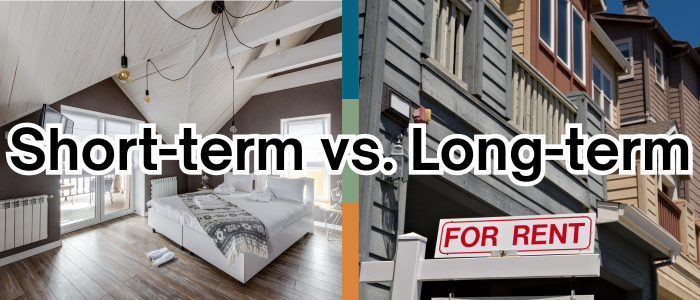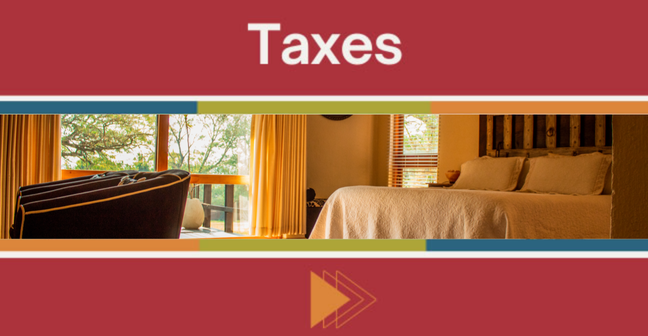
Confusion around the tax treatment of short-term and long-term rentals is a common challenge facing real estate investors, owners of vacation property, and even homeowners looking to add monthly cash flow by renting out space in their primary residence.
In this post, you’ll find clear answers to the biggest questions property owners ask their CPA.
What defines a short-term rental for tax purposes?
Short-term rentals are typically rented for an average of seven days or less per guest stay, whereas long-term rentals are rented for 30+ days at a time to the same tenant.
Note that tax treatment is determined by the average. It is OK to have a longer-term temporary tenant and maintain short-term rental status if you have sufficient shorter stays to bring your average down to seven or fewer.
Self-employment tax implications
- Short-term rentals may be classified as a business if you provide substantial services – for example, cleaning, meals, and concierge – and this income could be subject to self-employment tax
- Long-term rentals are generally considered passive income and not subject to self-employment tax
Which rental property expenses are deductible?
While both rental types allow deductions, such as mortgage interest, repairs, maintenance, property taxes, depreciation, and marketing/advertising, short-term rentals may qualify for higher deduction levels if qualified as a business.
Long-term rentals follow passive activity rules, which can limit deductions in some cases.
Depreciation deductions follow a similar pattern, as a short-term rental that is treated as a business may qualify to use faster depreciation methods.
Material participation and losses
- Short-term rental owners can deduct losses without being a real estate professional, if they materially participate in the business
- Long-term rental losses are usually limited unless you qualify as a real estate professional under IRS rules
How to report short-term rentals vs. long-term rentals
Owners of short-term rentals typically receive 1099-Ks from the third-party platforms where their property is listed. AirBnB, VRBO, etc. When substantial services are provided, income will be reported on Schedule C, otherwise Schedule E.
Owners of long-term rentals always report income on Schedule E.
In both cases, 1099-MISCs may need to be created when directly paying an independent contractor or unincorporated business more than $600 for services during the year.
Local occupancy tax
Depending on your location, owners of short-term rentals may also be obligated to collect and remit occupancy tax or other local taxes. While some third-party booking sites take care of this for you, the owner is responsible for collecting the appropriate taxes on all other reservations.
What is the 14-day rule?
The 14-day rule is a special provision that generally allows property owners to rent out their primary residence for 14 or fewer days per year and not report rental income.
Which is better: short-term or long-term rentals?
Both types of rentals can be lucrative investments, offering significant tax advantages. When choosing the best option for your unique situation, tax treatment is only one of many considerations.
For help walking through the process and making the right decision for your goals, email masterplan@accountabilityservices.com to schedule a Real Estate Investing advisory session.





